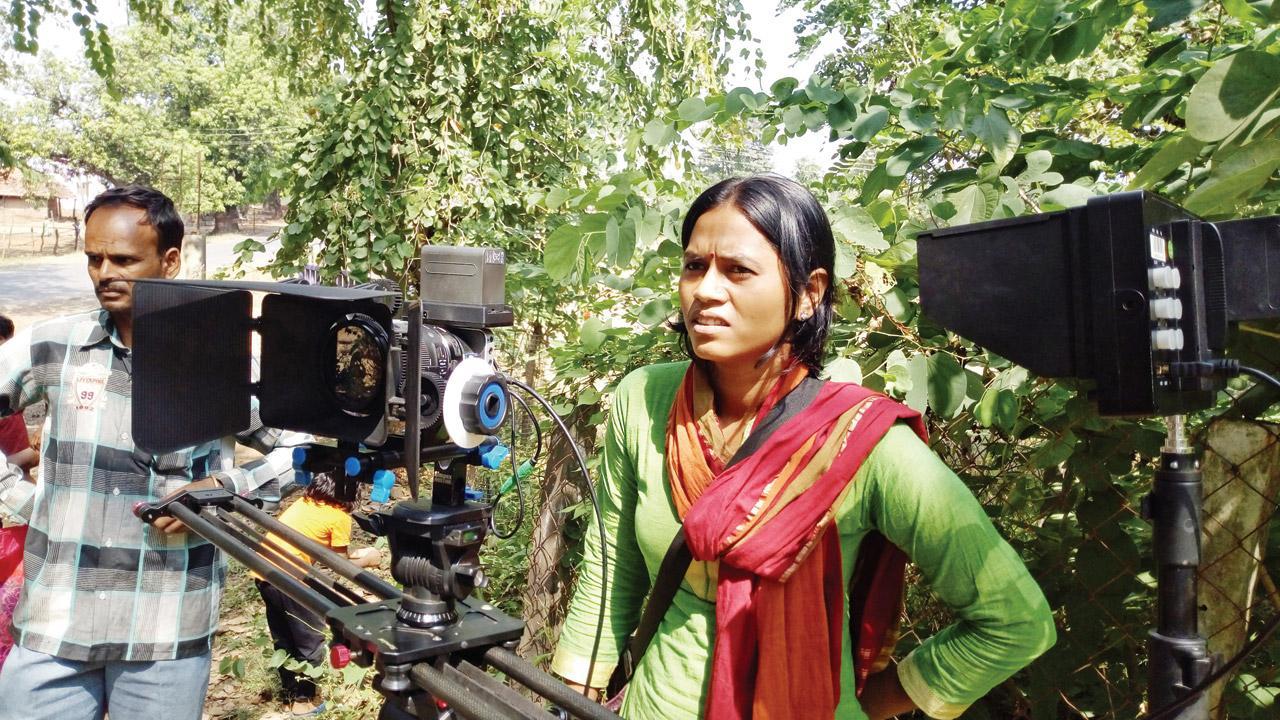That’s Nashik’s Maya Muktai for you. She started filming documentaries over a decade ago, getting beaten by the police but giving voice to the disadvantaged

In 2010, Maya Muktai was among three rag-pickers selected to represent India at the UN Climate Change conference in China
At 34, Maya Muktai has traversed more worlds than many twice her age. From rag-picking to representing India at an international conference; from a child bride to a video journalist; Muktai’s story made her one of the finalists for the 2021 Network for Women in the Media fellowship.
At 34, Maya Muktai has traversed more worlds than many twice her age. From rag-picking to representing India at an international conference; from a child bride to a video journalist; Muktai’s story made her one of the finalists for the 2021 Network for Women in the Media fellowship.
Born in a village in Marathwada, Muktai couldn’t attend school because she had to help her family in the fields. Married off at 13, she moved to Nashik city. Her neighbours there were rag pickers and she joined them, slogging all day to earn Rs 20. By the time she turned 14, she’d had her first child. However, neither lack of schooling nor the daily grind of survival killed the teenager’s natural curiosity.
Unlike other unions, the Kagad Kach Patra Kashtakari Panchayat, headed by Pune’s legendary Baba Adhav, which she joined in 2003, gave its members opportunities to grow, introducing them to training programmes conducted by NGOs. Muktai first learnt to sign her name, and then signed up for every programme. “I wanted to learn every skill possible,” she says.
First step into filmmaking
In 2010, Maya was among three rag-pickers selected by the Panchayat to represent India at the UN Climate Change conference held at Tianjin, China. There, she was introduced to the wonder of videography. On her return, she requested the Panchayat to help her learn this skill. The training she received from NGO Abhivyakti changed her life.
She decided her first film would be on her colleagues. “Only a rag-picker could make the film I wanted,” says Muktai. “Outsiders don’t even regard us as humans. As an insider, I knew what to highlight, beginning from how much these women slog from the time they wake up.” The response from her colleagues encouraged Muktai to show her documentary to the authorities, including Nashik’s police force. Ironically, while shooting rag-pickers at a dumping ground, a policeman had beaten her, believing that a video camera in a rag-picker’s hands meant it had to be stolen property.
Making community videos to highlight the problems of people like her became Muktai’s new profession. “I couldn’t write; using a camera was easier. And I’ve found that a 5-minute video is more effective than a newspaper report.”
In 2013, Muktai joined Video Volunteers, an organisation that commissions video journalists from the grassroots to highlight community issues. She makes two videos a month for them, but stays with the story till the problem is resolved. Repeated follow-ups with officials and going back to the community to check if official claims are true have sometimes taken as long as two years.
Short of cash, but full of hope
All this means Muktai is always short of money. Persuading villagers to come to Nashik to meet officials often involves paying their fare and looking after their needs in the city. “I need to make them feel secure,” she says. “They have put their trust in me.”
Not everyone is willing to speak on camera, says Muktai. “I keep telling people we can’t wait for some leader to come and solve our problems; we have the right to basic amenities, and we must speak up for it.” Through her videos, she has helped bring water and even homes to communities deprived of them. “The experience of winning your rights by your own struggle is invaluable for those who feel they are powerless,” says Muktai.
Despite her precarious finances, Muktai is unwilling to join commercial news channels in Nashik. “Channel owners have their own links with the establishment. As a freelancer, I can question anyone.”
Recipient of many awards, Muktai has now set up Pukar Films Production with activist Anand Pagare to make promotional documentaries. Brimming with ideas, the single mother of three now, hopes to start her own YouTube channel one day.
 Subscribe today by clicking the link and stay updated with the latest news!" Click here!
Subscribe today by clicking the link and stay updated with the latest news!" Click here!










